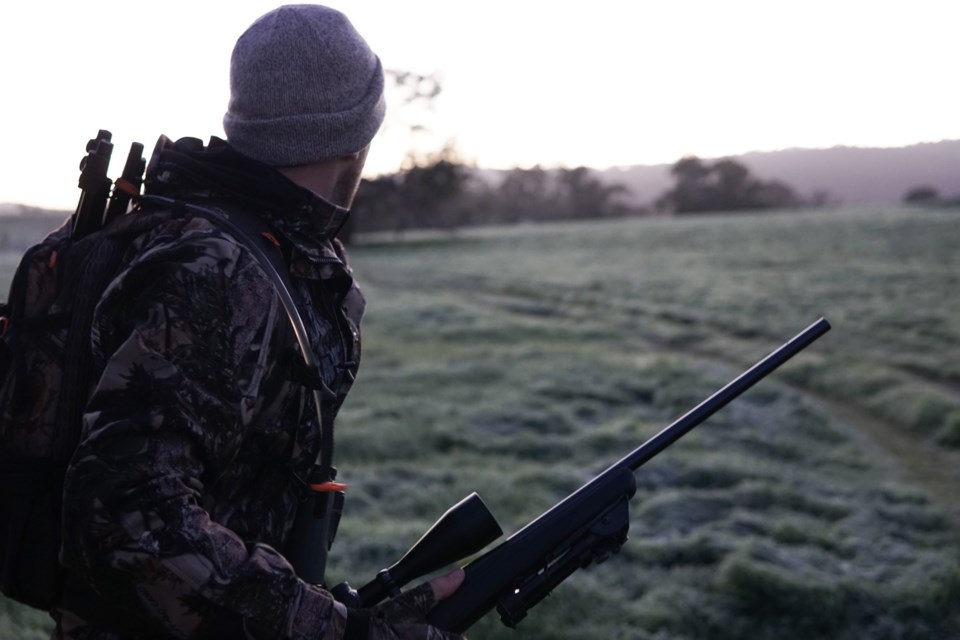"Go afield with a good attitude, with respect for the wildlife you hunt and for the forest and fields in which you walk. Immerse yourself in the outdoor experience. It will cleanse your soul and make you a better person." — Fred Bear
Every year, as daylight hours shorten and trees go bare, avid hunters clad in brilliant orange venture into crisp fields and snow-dusted forests searching for deer, ducks, moose, and other quarry.
I was lucky to have grown up in a hunting family. Both my mother and father's extended families hunted.
My great-grandfather was a prolific hunting guide and taxidermist, and though I never had the chance to meet him, our family has many great stories of his exploits.
I have many fond memories of enjoying the meals that resulted from the successful hunting trips the family took into the northern Ontario wilderness.
Venison stew, moose burgers and, on a rare occasion, bear sausage were all served as the luck of the hunt would allow. Not every year, but often enough.
As times goes on, the hunting traditions are slowly fading in our family. My generation seem a little less inclined to sit in the woods on a cold November day and now lean toward the ease of having our burgers “Skipped” to our doors.
As a chef, I’ve always enjoyed working with wild game. It is, by its very nature, an organic source of protein. Hormone- and antibiotic-free, wild game meat can be a healthy choice in our diet.
Wild game meat is classified as a “lean” meat, meaning it has a high-protein, low-fat and low-calorie content ratio, which means it's very good for you.
Since wild animals feed exclusively on natural vegetation, their meat contains more Omega-3 fatty acids and less saturated fat than the standard grain-fed, factory-farmed animals.
The key to wild game’s health benefits — just like organic, free-range farm animals — is their all-natural vegetation diet.
When discussing the health benefits of most meat, the topic of fat content usually comes up.
With wild game animals, the fat content can range from about 0.5 per cent for moose to four per cent in waterfowl. Domestic livestock comes in around 25 to 30 per cent fat. Wild game meat is high in zinc and iron, because wild animals eat natural vegetation as opposed to commercial grains.
There is a catch to being able to source wild game meat, though. In Ontario, it's against the law to sell wild, harvested meat commercially. This relegates chefs and those who enjoy the exotic meats with purchasing the available penned-raised animals, including wild boar, rabbits, pheasants, elk, and fallow deer as “wild game.”
The purpose is to protect the consumer and ensure the meat is clean, disease-free and properly handled through the food chain.
Here in Barrie, we are lucky to have an excellent purveyor of game meats in the city limits.
Bokkies Biltong — Our local exotic butcher shop that provides clients with premium quality fresh local meats as well as international imported meats, cheese, and specialty groceries, handcrafted baking, and fresh desserts.
Opened on Oct 8, 2011, Bokkies Biltong is a provincially licensed, free-standing meat plant. With weekly inspections under Ontario Ministry of Agriculture Food and Rural Affairs (OMAFRA), they are held to the provinces rigorous health standards and record keeping of every product produced or sold in the facility.
At the shop, they sell a wide selection of meats including bison, deer, elk, water buffalo, duck, wild boar, crocodile, alligator, kangaroo, and ostrich in just about every cut. Also available is a great selection of specialty wild game sausages, burgers and, of course, biltong.
What is biltong? It’s a South African cured and air-dried beef delicacy. It shares the similarity to beef jerky in that it is made from beef and it's dried, but biltong differs in the process, ingredients, consistency and, most importantly, the taste. Worth a visit to feed the carnivore cravings or maybe to pack up some biltong for the field on your next hunting trip.
If you are interested in hunting, or like me have not been in the field for a long time but like the idea of incorporating real wild game into your diet, look for our local hunter training certificate and get out there – go hunting in our wild fields and forests. Click here for more information on hunting courses in Ontario.



